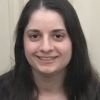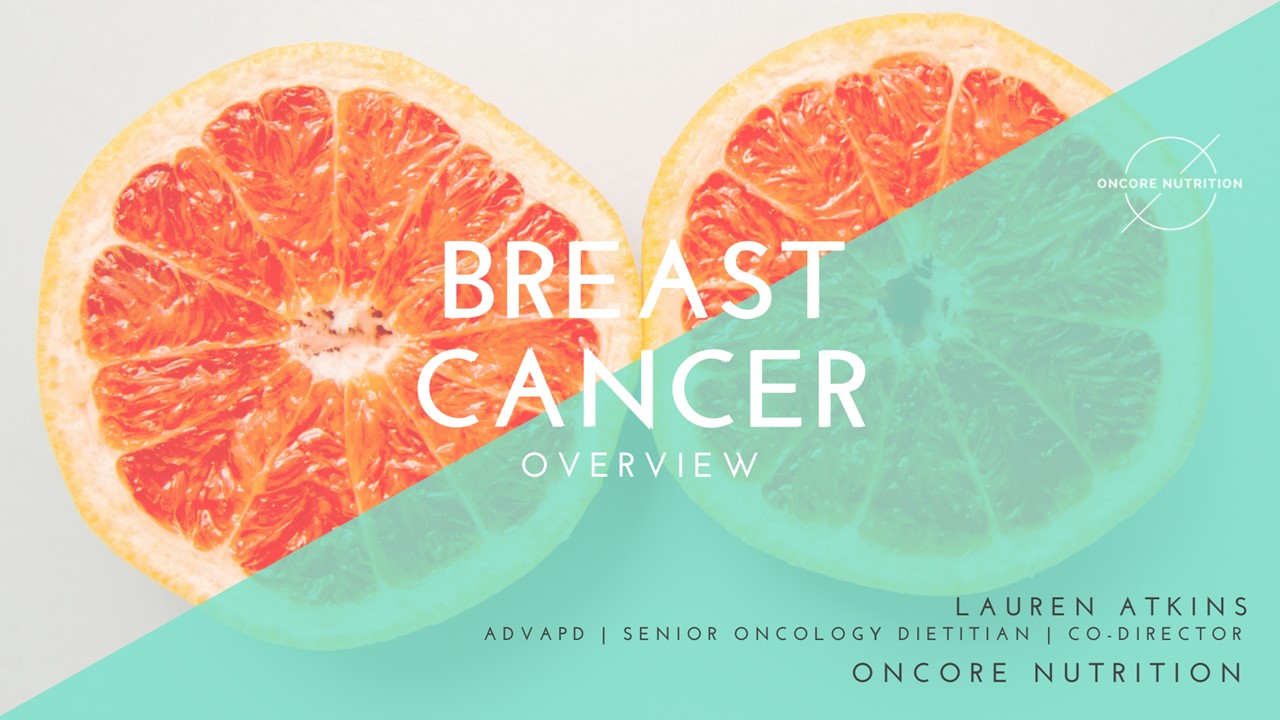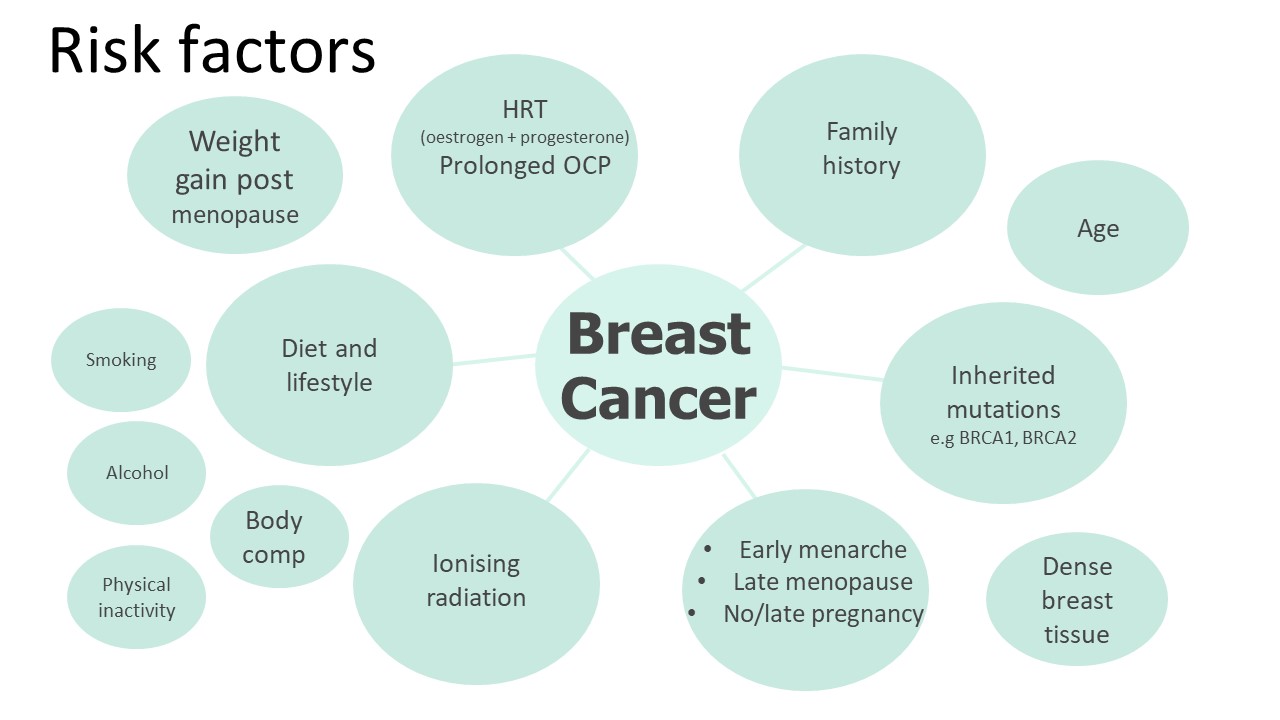Breast Cancer. Presented by Lauren Atkins, Senior Oncology AdvAPD
 Anthea Talliopoulos, APD
Anthea Talliopoulos, APD
With over 19,000 women being diagnosed with breast cancer in 2021, breast cancer is a prevalent condition. By age 85, it is estimated that 1 in 7 women will have experienced breast cancer. The overall survival rate of breast cancer is 91%, with the rate of survival being heavily reliant on early diagnosis and current treatments. Risk factors include family history, inherited genetic mutations (including BRCA1 and BRCA2 genes), early menarche, late natural menopause, hormonal treatments, as well as diet and lifestyle factors.
In this informative presentation, Senior Oncology Advanced Accredited Practising Dietitian, Lauren Atkins shares her knowledge and expertise on breast cancer, including the aetiology, risk factors, diagnosis, treatment, and treatment of the condition. This information equips us to have confident conversations with our clients.
When diet and lifestyle factors are considered, contrary to popular belief, Lauren explains how a higher BMI and waist-to-hip ratio in young adulthood is considered to reduce the risk of pre- and post- menopausal breast cancer. This is believed to occur through a complex mechanism due to a decreased growth velocity, causing overall reduced levels of the hormone IGF-1, a hormone which is associated with increased breast cancer risk. On the contrary, she explains how body fatness in adulthood increases levels of insulin and oestrogen, and thus is associated with increased risk of breast cancer through creating an environment that promotes carcinogenesis and suppresses apoptosis.
From a dietary perceptive, alcohol intake was associated with increased risk, whilst non-starchy vegetable consumption, and higher carotenoid was found to reduce breast cancer risk. Not surprisingly, physical activity was also associated with decreased risk through altering body composition, improving insulin sensitivity, and promoting natural cancer surveillance and cell elimination.
Overall, the diagnosis, aetiology, and treatment of breast cancer is complex, with further research continuously being performed to improve patient outcomes and improve quality of life, including the management of treatment side-effects.
Summary:
- Breast cancer is a prevalent condition, being the second deadliest cancer in women.
- The aetiology of breast cancer is complex, with current research indicating that increased body fatness in adulthood is associated with increased risk of breast cancer through promoting insulin resistance and increasing circulating IGF-1.
- Physical activity has been associated with decreased risk of breast cancer through reducing circulating oestrogens, improving insulin sensitivity, and promoting natural cell surveillance and eliminations.
- The treatment of breast cancer varies depending on the type, grade, and stage of the breast cancer but common treatments include surgery, chemotherapy, radiation therapy, endocrine therapy, and targeted therapy.
This presentation is useful for dietitians who want to increase their confidence in talking about all aspects of breast cancer with their clients.
Lauren has worked in cancer care and survivorship for over 10 years. She co-founded her business, OnCore Nutrition after having spent her career working as a Senior Dietitian at Peter MacCallum Cancer Centre, The Royal Children’s Hospital Cancer Centre, Epworth Freemasons, as well as providing education for Deakin, Monash, LaTrobe, Victoria and Melbourne Universities. She has vast experience in using good nutrition to help prevent, manage and overcome cancer, from diagnosis through to survivorship and palliation. She is a member of the COSA Nutrition Group Executive Committee and has been invited to contribute to national cancer care frameworks and present much of her research at national and international conferences. Lauren has undertaken advanced training in natural and integrative medicine to better advise individuals and groups on the safe and appropriate use of complementary therapies.
To register for the presentation and associated documents including the assessment quiz click here

